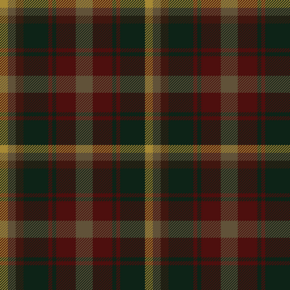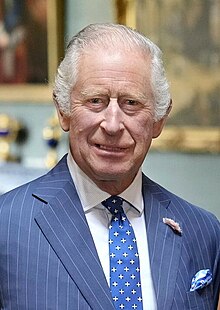Portal:Canada
| Showcase | Content | Contributing |
Introduction
Canada is a country in North America. Its ten provinces and three territories extend from the Atlantic Ocean to the Pacific Ocean and northward into the Arctic Ocean, making it the world's second-largest country by total area, with the world's longest coastline. Its border with the United States is the world's longest international land border. The country is characterized by a wide range of both meteorologic and geological regions. It is a sparsely inhabited country of just over 41 million people, the vast majority residing south of the 55th parallel in urban areas. Canada's capital is Ottawa and its three largest metropolitan areas are Toronto, Montreal, and Vancouver.
Canada is a parliamentary democracy and a constitutional monarchy in the Westminster tradition. The country's head of government is the prime minister, who holds office by virtue of their ability to command the confidence of the elected House of Commons and is appointed by the governor general, representing the monarch of Canada, the ceremonial head of state. The country is a Commonwealth realm and is officially bilingual (English and French) in the federal jurisdiction. It is very highly ranked in international measurements of government transparency, quality of life, economic competitiveness, innovation, education and gender equality. It is one of the world's most ethnically diverse and multicultural nations, the product of large-scale immigration. Canada's long and complex relationship with the United States has had a significant impact on its history, economy, and culture.
A developed country, Canada has a high nominal per capita income globally and its advanced economy ranks among the largest in the world, relying chiefly upon its abundant natural resources and well-developed international trade networks. Recognized as a middle power, Canada's strong support for multilateralism and internationalism has been closely related to its foreign relations policies of peacekeeping and aid for developing countries. Canada is part of multiple international organizations and forums. (Full article...)
Featured article -
The Klondike Gold Rush was a migration by an estimated 100,000 prospectors to the Klondike region of Yukon, in north-western Canada, between 1896 and 1899. Gold was discovered there by local miners on August 16, 1896; when news reached Seattle and San Francisco the following year, it triggered a stampede of prospectors. Some became wealthy, but the majority went in vain. It has been immortalized in films, literature, and photographs. (Full article...)
Featured biography -

Edith Blanche Rogers (née Cox; September 20, 1894 – July 17, 1985) was a Canadian politician who served as a member of the Legislative Assembly of Alberta from 1935 until 1940. Born in Nova Scotia, she came west to Alberta to accept a job as a teacher. She later moved to Calgary where she encountered evangelist William Aberhart and became a convert to his social credit economic theories. After advocating these theories across the province, she was elected in the 1935 provincial election as a candidate of Aberhart's newly formed Social Credit League. (Full article...)
Selected panorama -
National symbol -

Regional tartans of Canada are represented by all Canada's provinces and territories having a regional tartan, as do many other regional divisions in Canada. Tartans were first brought to Canada by Scottish settlers; the first province to adopt one officially was Nova Scotia in 1956 (when registered at the Court of the Lord Lyon; adopted by law in 1963), and the most recent province was Ontario, in 2000. Except for the tartan of Quebec, all of the provincial and territorial tartans are officially recognized and registered in the books of the Court of the Lord Lyon, King of Arms of Scotland. (Full article...)
Selected vital article -

The monarchy of Canada is Canada's form of government embodied by the Canadian sovereign and head of state. It is one of the key components of Canadian sovereignty and sits at the core of Canada's constitutional federal structure and Westminster-style parliamentary democracy. The monarchy is the foundation of the executive (King-in-Council), legislative (King-in-Parliament), and judicial (King-on-the-Bench) branches of both federal and provincial jurisdictions. The current monarch is King Charles III, who has reigned since 8 September 2022. (Full article...)
Selected picture -
Credit: Benjamin West
Current events
- August 22, 2024 – 2024 Canada railway shutdown
- Canadian National Railway and Canadian Pacific Kansas City lock out roughly 10,000 unionized railroad workers in Canada, leading to a railway stoppage that impacts many North American supply chains and may cost the economy of Canada C$341 million per day. (Reuters)
- In response to the railway stoppage, Canadian labour minister Steven MacKinnon refers the two disputes to binding arbitration. (CBC News)
- August 21, 2024 – 2024 Canada railway shutdown
- Canada's two largest freight railroads Canadian Pacific Kansas City and Canadian National Railway announce a complete shutdown of services due to a contract dispute, shutting out its Teamsters-represented union workers. (Reuters) (AP)
- August 10, 2024 – 2024 Summer Olympics
- In the first-ever men's breakdancing event at the Olympics, Philip "Phil Wizard" Kim of Canada wins the B-Boys gold medal, with Danis "Dany Dann" Civil of France winning the silver and Victor Montalvo of the United States winning the bronze. (CBC News)
- July 31, 2024 –
- One person is killed and at least 40 others are injured when a tent collapses in a windstorm at a Buddhist retreat in Busby, Alberta, Canada. (CBC News)
- July 28, 2024 – 2024 Summer Olympics
- Canada at the 2024 Summer Olympics
Did you know -

- ... that as of 2019, inclusion in the International Register of Electors no longer requires residency in Canada in the preceding five years?
- ... that Fredrick Wangabo Mwenengabo, a Congolese-Canadian anthropologist and human rights activist, survived being kidnapped and held for ransom in the Democratic Republic of the Congo?
- ... that Tory MP John Solomon Cartwright refused a request by the governor-general of the Province of Canada to join the government, because he would not sit in Cabinet with radical Francis Hincks?
- ... that the Canadian rock band Rainbow Butt Monkeys changed their name to "Finger Eleven" before releasing their second album Tip?
- ... that to convince Canadian regulators that Vancouver could support a new ethnic radio station, the founder of CJVB documented local restaurants and Sikh temples?
- ... that research conducted in 2020 found that squirrels are "nearly ubiquitous" on college campuses in the United States and Canada?
- ... that Theo Benedet is the first offensive lineman to be named the best Canadian university football lineman two years in a row?
Featured list -
The Parliament of Canada is the legislative body of the government of Canada. The Parliament is composed of the House of Commons (lower house), the Senate (upper house), and the sovereign, represented by the governor general. Most major legislation originates from the House, as it is the only body that is directly elected. A new parliament begins after an election of the House of Commons and can sit for up to five years. The number of seats in parliament has varied as new provinces joined the country and as population distribution between the provinces changed; there are currently 338 House MPs and 105 Senators (when there are no vacancies). (Full article...)
Main articles
Associated Wikimedia
The following Wikimedia Foundation sister projects provide more on this subject:
-
Commons
Free media repository -
Wikibooks
Free textbooks and manuals -
Wikidata
Free knowledge base -
Wikinews
Free-content news -
Wikiquote
Collection of quotations -
Wikisource
Free-content library -
Wikiversity
Free learning tools -
Wikivoyage
Free travel guide -
Wiktionary
Dictionary and thesaurus






























